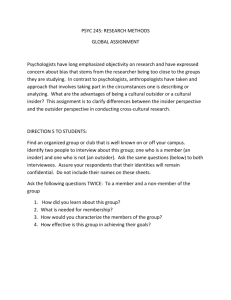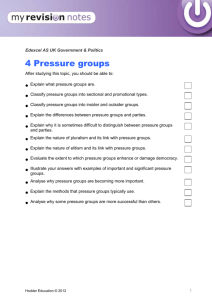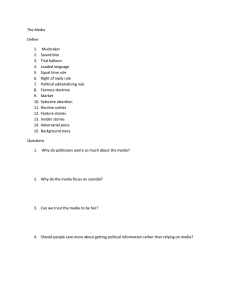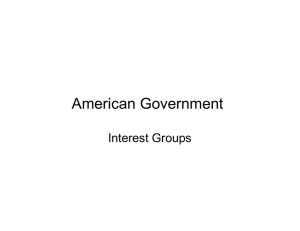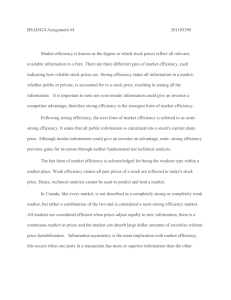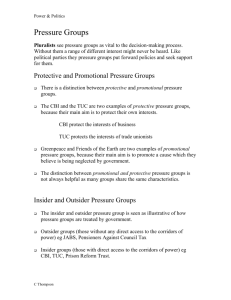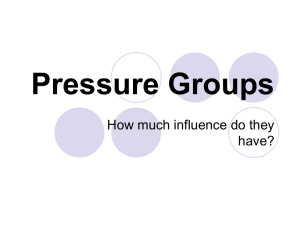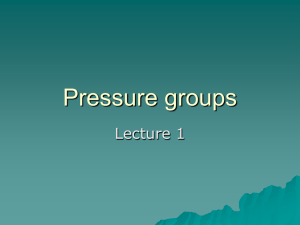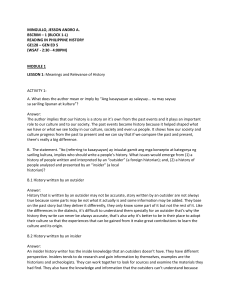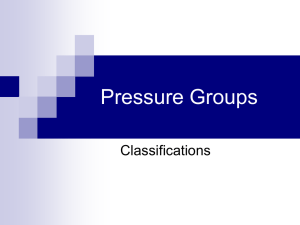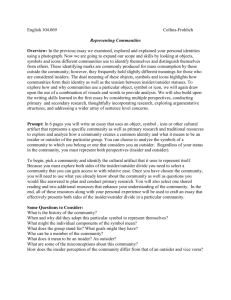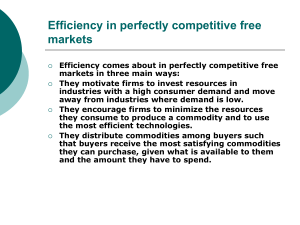Pressure Groups: Types, Methods, and Success Factors
advertisement
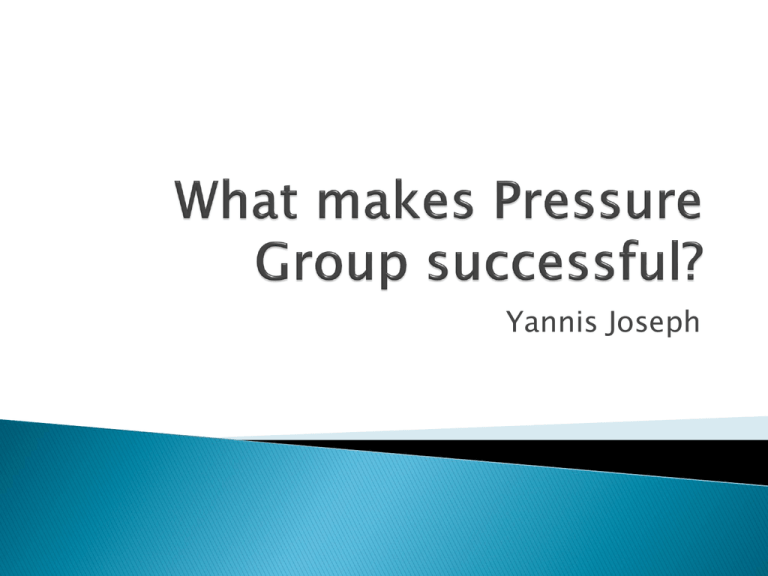
Yannis Joseph What are pressure groups? Pressure groups are groups of like minded people who to seek influence those in power without acquiring political power themselves Examples of pressure groups: Sectional groups: they represent the interest of a particular sections in society i.e. Teachers (the National Union of Teachers) Promotional groups: They seek to advance particular causes and ideas to benefit society (Green Peace) unlike sectional groups who only seek to help a particular group. Methods used by pressure groups? Taking action in the UK and international courts to challenge government decisions. Using professional lobbyist: businesses that are set up to contact and persuade politicians on behalf of the PG. Attempting to provide politicians with funds or expert advice. Using the media in a variety of ways, e.g. Publicity and stunts.. F4J. Illegal actions such as damage to property or even murder to force others to agree. What political access point will pressure groups use? The executive – Whitehall civil servants, ministers and the PM. The Legislature – Both House of Commons and House of Lords. Political parties – through individual MPs, influencing their manifestos and through supporting MPs and parties financially. Wynn Grant distinguishes between insider and outsider groups. Insider groups like BMA (British Medical Association) and the CBI are those that are accepted by the government and often consulted when policy is being made. These are known as the core insider groups. Outsider groups either cant get into this position or dont want to, such as some radical action groups who believe in violent demonstrations or in violent actions like those carried out by some anti-vivisection groups. Good Organisation: they need to match the efficiency of the business they are trying to influence. Funding: the more financial resources the better. Green Peace has the financial resources to run several ocean going ships, so it can operate world wide. Public Opinion: if public opinion is with them, a pressure group can influence the largest of organisations. Use of all possible methods of influence: media, courts, govt. etc. Fathers for Justice Commitment of members: members must believe their cause and be willing to fight for it. Good leadership and possibly patronage (favouritism) e.g. The anti-landmine campaigns when led by princess Diana
